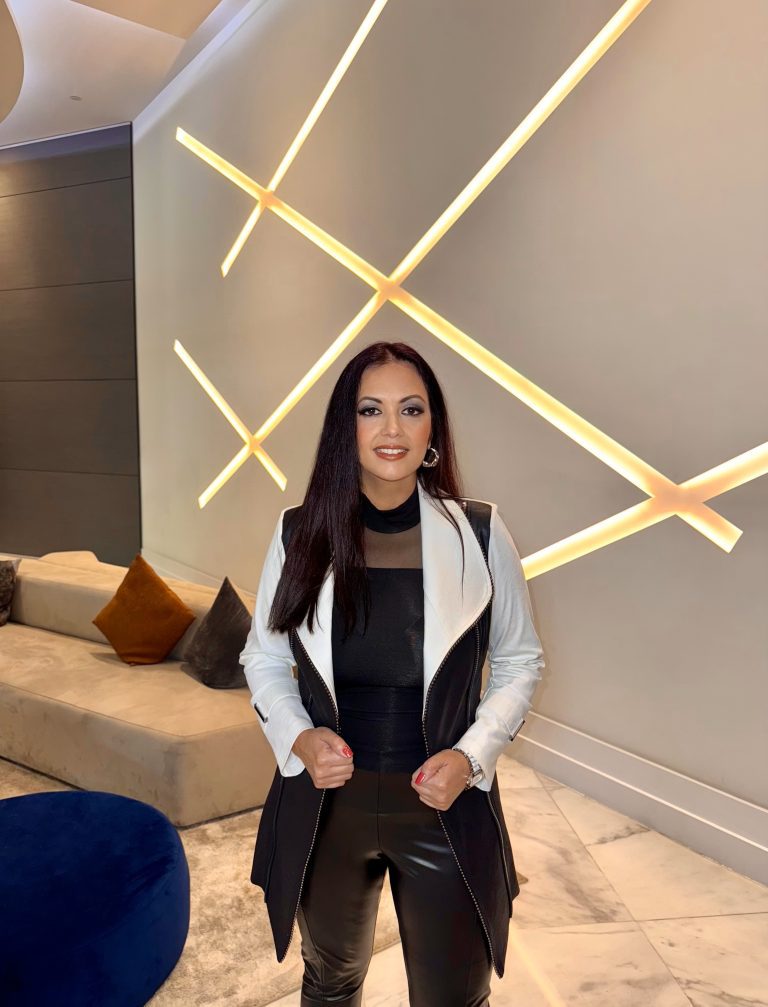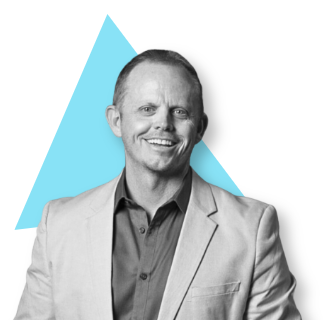Onahira Rivas is an award-winning entrepreneur, global business strategist, and CEO of Florida’s Cotton Clouds, the first woman-led factory for U.S.-made cotton products. With over 24 years of experience scaling global brands and launching multimillion-dollar ventures across pharma, consumer goods, and retail, Onahira has built a reputation as a resilient leader and growth architect.
A former executive at Novo Nordisk and Bristol Myers Squibb, she has led major product launches, international expansions, and strategic transformations. As a member of the Forbes Business Council and winner of The Blox TV competition, Onahira now advises entrepreneurs and CEOs on how to scale with purpose and power.
Company: Floridas’ Cotton Clouds
We are thrilled to have you join us today, welcome to ValiantCEO Magazine’s exclusive interview! Let’s start off with a little introduction. Tell our readers a bit about yourself and your company.
ONAHIRA RIVAS: Thank you, I’m honored to be part of ValiantCEO Magazine’s exclusive interview series.
I’m Onahira Rivas, CEO of Florida’s Cotton Clouds, a visionary company committed to reviving American manufacturing through the production of high-quality cosmetic cotton products. We’re currently building the first women-led factory of its kind in Florida, with a mission to empower local jobs, restore domestic supply chains, and inspire ethical entrepreneurship.
With over two decades of global experience in business strategy, pharma, and consumer goods, I’ve led major expansions, launched over 700 products in the U.S. retail market, and helped scale operations across multiple industries. As a Forbes Business Council member, winner of The Blox TV show, and international business consultant, I now help brands and founders develop the frameworks they need to grow and lead with purpose.
Can you share a time when your business faced a significant challenge? How did you navigate through it?
ONAHIRA RIVAS: Absolutely. One of the most defining challenges in my business journey occurred during the COVID-19 pandemic. At the time, I was supplying a wide range of souvenir and travel-related products to retailers and gift shops across the U.S. When global travel abruptly shut down, demand vanished overnight, leaving me with over 500 SKUs of unsold inventory.
Instead of remaining paralyzed by uncertainty, I shifted into strategic problem-solving mode. I analyzed which sectors were still active and identified a rising demand for essentials, particularly in personal care and hygiene. Around that time, a contact offered me access to hand sanitizer, and I immediately recognized the opportunity to pivot.
I swiftly integrated hygiene products into my portfolio, starting with sanitizer and expanding into hand soaps and personal care items. Through this transition, I discovered the steady demand for cotton-based hygiene products like cotton balls, pads, and swabs, which I initially sold under generic brands. This pivot not only helped me survive the crisis but laid the foundation for Florida’s Cotton Clouds, a purpose-driven venture built on resilience, adaptability, and market awareness.
As a business consultant, I understand that every company faces unique challenges. That’s why I’m passionate about helping entrepreneurs develop tailored solutions that turn setbacks into strategic growth opportunities.
How has a failure or apparent failure set you up for later success?
ONAHIRA RIVAS: One of my most powerful lessons came from the apparent failure of SuperPharma, my previous venture, where I successfully introduced over 700 products to major U.S. retailers, including Walmart. While the business saw strong early traction, I began to notice a rapid decline in the online retail space. Customers were negotiating down to cents, margins were shrinking, and the market was becoming increasingly saturated and unsustainable.
Rather than hold on and watch the business slowly decline, I made the intentional decision to close it. I stepped back, assessed what was truly valuable from the venture, and recognized that the most enduring asset was the knowledge, network, and real-world experience I had gained in retail, operations, and scaling.
That “failure” became the foundation for my newest and most purpose-driven project: Florida’s Cotton Clouds. I took everything I learned, from logistics and pricing to supplier relationships and market positioning, and channeled it into building a resilient, locally rooted manufacturing company with a long-term vision and scalable infrastructure.
What once felt like a setback was really a redirection, one that led me to build a business far more aligned with my values and vision.
As a business consultant, I draw from these lived experiences to help other entrepreneurs and founders navigate uncertainty, avoid costly missteps, and build strong, scalable ventures. I believe every challenge carries the seed of growth, when paired with the right strategy and support.
How do you build a resilient team? What qualities do you look for in your team members?
ONAHIRA RIVAS: Building a resilient team starts with hiring for character before credentials. I look for people who are adaptable, mission-driven, and solution-oriented, individuals who don’t just want a job, but are excited to be part of something greater than themselves. Skills can be trained, but integrity, grit, and a strong work ethic are non-negotiable.
Resilience also comes from creating a culture of trust, communication, and shared vision. I make it a priority to involve my team in the bigger picture, from why we’re building to how their roles contribute to long-term impact.
I’ve learned that a resilient team isn’t just one that survives pressure, but one that knows how to innovate under pressure. I encourage initiative, celebrate small wins, and lead with transparency, especially when navigating challenges. Resilient teams grow through challenges, not around them.
How do you maintain your personal resilience during tough times?
ONAHIRA RIVAS: For me, resilience is first and foremost spiritual. My greatest source of strength comes from my relationship with God. I lean into prayer, reflection, and scripture to stay grounded, especially in seasons of uncertainty. Trusting that every challenge has purpose gives me peace and direction, even when the path isn’t clear.
After that, planning becomes essential. I’ve learned that resilience isn’t just about enduring, it’s about navigating with wisdom. I focus on the big picture and understand that success is built through process. Strategic thinking helps me stay calm and centered, allowing me to make clear, informed decisions instead of reacting emotionally. I always seek to gather the full context and data before making a move, because clarity brings confidence.
I also maintain resilience by staying connected to my purpose. I constantly remind myself why I started, whether it’s empowering local manufacturing, mentoring entrepreneurs, or creating legacy opportunities for others. That “why” keeps me moving when circumstances get heavy.
As a business consultant, this is how I guide others as well, combining values and principles with solid planning, clarity, and strategic execution. I help leaders not only withstand challenges, but emerge from them stronger, more focused, and aligned with their higher purpose.
What strategies do you use to manage stress and maintain focus during a crisis?
ONAHIRA RIVAS: In times of crisis, my first strategy is to pause and pray. Before reacting, I center myself spiritually and emotionally to gain clarity and discernment. That inner alignment allows me to lead with calm and confidence, not panic.
I also believe in focusing on what I can control. I break challenges down into actionable steps and surround myself with truth-tellers, people who bring wisdom, not fear. I make data-informed decisions, but I always leave room for intuition and divine guidance.
To stay focused, I practice time-blocking, strategic delegation, and setting clear priorities. I also protect my mental space by limiting distractions, especially during high-pressure moments. Whether it’s five minutes of silence or a walk to reset, small habits help me stay sharp.
Finally, I remind myself of past crises I’ve overcome. That reminder fuels my confidence: If I made it through that, I can make it through this too.
How do you communicate with your team during a crisis?
ONAHIRA RIVAS: I always communicate with my team during a crisis calmly and with a clear strategic plan. Business rarely goes exactly as planned, so I treat challenges as part of the process, not as emergencies. My role as a leader is to bring stability, not panic.
I rely on systems and frameworks that help us step back, assess the big picture, and identify what needs to shift. This structured approach allows the team to stay focused on solutions instead of reacting emotionally. I prioritize transparency, giving my team the right context, the rationale behind decisions, and the confidence that we’re navigating the storm with purpose and precision.
In short, I lead with vision, not just reaction. That mindset creates trust, unity, and momentum, even in uncertain moments.
What advice would you give to other CEOs on building resilience in their organizations?
ONAHIRA RIVAS: First, build from a strong foundation. For me, that foundation is faith, believing that your business has a purpose beyond profit gives you and your team a deeper reason to push through hard seasons. When leaders stay rooted in something bigger than themselves, it sets the tone for the entire organization.
Next, resilience starts with clarity. CEOs must develop the ability to see the big picture, anticipate challenges, and create flexible strategies. That means investing in strong planning systems, clear processes, and data-informed decision-making. When teams understand the vision, the plan, and their role in it, they’re far more capable of adapting without losing momentum.
I also recommend creating a culture where calm, communication, and continuous improvement are the norm, not just reactions in a crisis. Resilient organizations are those that build internal systems for reflection, realignment, and renewal.
Finally, never underestimate the power of mentorship and external perspective. As a business consultant, I often help CEOs and leadership teams build customized strategies for sustainable growth and resilience. Sometimes, all it takes is an outside lens to help a company turn uncertainty into opportunity.
How do you prepare your business for potential future crises?
ONAHIRA RIVAS: Preparing for future crises starts with proactive planning, not reactive thinking. I believe in having a clear strategic vision while staying flexible enough to adapt when conditions change. That means building strong internal systems, maintaining efficient operations, and regularly evaluating both market trends and internal performance.
One key practice I use is scenario planning, thinking through different “what if” situations and having action plans ready for each. This not only gives my team clarity in uncertain times but also allows us to move quickly and with confidence when faced with disruption.
I also prioritize data-informed decision-making. Having access to real-time information and understanding the numbers allows me to make smart, timely adjustments when needed. Equally important is maintaining a calm, focused mindset and a culture where the team is trained to problem-solve and stay aligned with the bigger picture.
As a business consultant, I help other organizations build this kind of resilience by designing customized contingency strategies, streamlining operations, and creating leadership systems that thrive even in uncertainty. It’s not about predicting every crisis, it’s about being ready to respond with structure, clarity, and confidence.
What’s the most important lesson you’ve learned about leadership in times of crisis?
ONAHIRA RIVAS: The most important lesson I’ve learned is that leadership in crisis isn’t about having all the answers, it’s about having the clarity, calm, and courage to lead with intention. People look to leaders not just for solutions, but for stability. If the leader panics, the team follows. But if the leader stays grounded, strategic, and communicative, the organization can move through challenges with strength and direction.
I’ve also learned the power of transparency and decisiveness. In times of crisis, silence creates uncertainty. It’s crucial to communicate clearly, set priorities, and make informed decisions, even when conditions are changing rapidly. That’s where planning, data, and the ability to see the big picture truly matter.
Crises reveal whether your systems are strong or fragile. They expose what’s working and what’s not. So, a good leader doesn’t just survive the storm, they use it as a chance to rebuild smarter and lead better.
As a business consultant, I bring this perspective into my work by helping founders and CEOs develop calm, actionable leadership strategies tailored to high-pressure situations, turning disruption into a catalyst for innovation and long-term growth.






